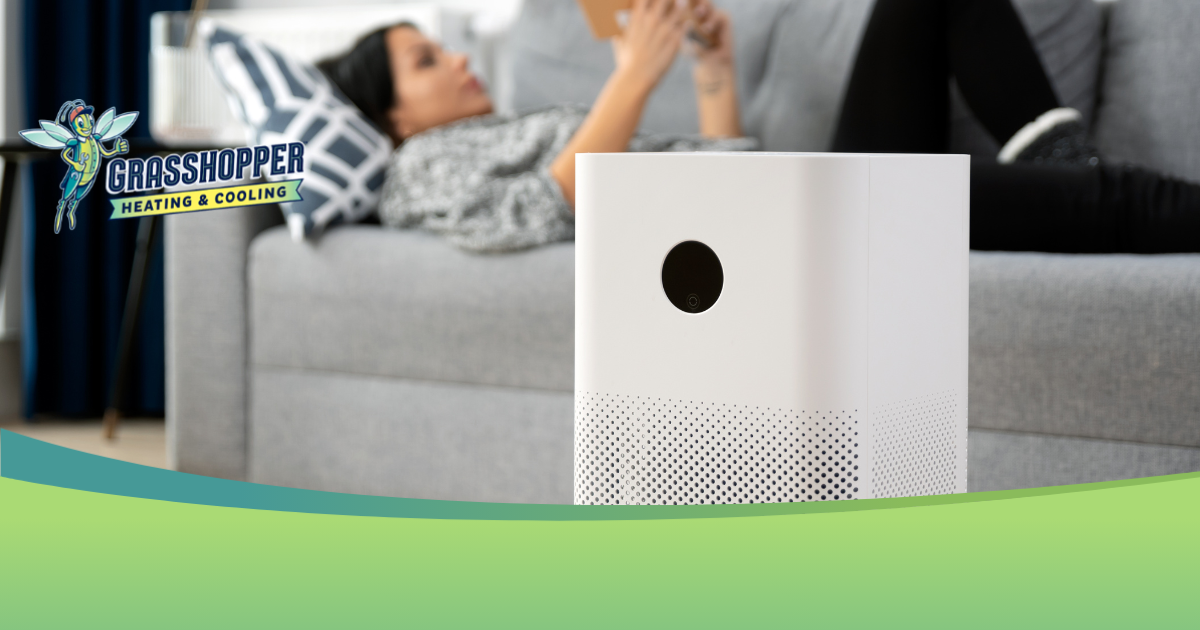Did you know that the air inside your home can be more polluted than the air outside? It’s true. Modern homes are built to be airtight, which means pollutants like dust, pet dander, mold spores, and volatile organic compounds (VOCs) can accumulate and circulate indoors. But there’s good news: by focusing on two key factors—air filtration and humidity control—you can significantly improve your home’s air quality, comfort, and overall health.
Why Filtration Is Essential
Your HVAC system’s air filter plays a crucial role in trapping airborne particles and preventing them from circulating throughout your home. High-efficiency filters, such as HEPA (High-Efficiency Particulate Air) filters, can capture up to 99.97% of particles as small as 0.3 microns, including pollen, pet dander, and dust mites. Regularly replacing these filters ensures optimal performance and cleaner air.
In addition to standard filters, whole-house air purifiers can be integrated into your HVAC system to provide an extra layer of protection. These systems use advanced technologies like UV-C light and activated carbon to neutralize bacteria, viruses, and odors, further enhancing indoor air quality.
The Role of Humidity in Indoor Air Quality
Humidity levels in your home can significantly impact both comfort and health. The ideal indoor relative humidity is between 30% and 50%. When humidity levels fall below 30%, the air becomes dry, leading to dry skin, irritated eyes, and increased susceptibility to respiratory infections. Conversely, humidity levels above 50% can promote mold growth, dust mites, and other allergens, exacerbating asthma and allergy symptoms.
Maintaining balanced humidity levels is particularly important during the winter months when heating systems can dry out indoor air. Using a humidifier can help restore moisture, creating a more comfortable and healthier living environment.
The Synergy of Filtration and Humidity Control
While filtration removes airborne particles, humidity control addresses the moisture content in the air. Together, they work synergistically to improve indoor air quality:
- Enhanced Comfort: Balanced humidity levels prevent dry skin and respiratory discomfort, while effective filtration ensures clean, breathable air.
- Healthier Environment: Controlling humidity reduces the growth of mold and dust mites, while filtration removes allergens and pathogens.
- Energy Efficiency: Proper humidity levels can make your home feel warmer in winter and cooler in summer, potentially reducing energy consumption.
Practical Tips for Homeowners
To optimize air quality in your home:
- Regularly Replace Air Filters: Check and replace HVAC filters every 1–3 months, or as recommended by the manufacturer.
- Use Whole-House Air Purifiers: Consider installing a whole-house air purifier to complement your HVAC system’s filtration.
- Monitor Humidity Levels: Use a hygrometer to keep track of indoor humidity and adjust with humidifiers or dehumidifiers as needed.
- Maintain HVAC Systems: Schedule regular maintenance to ensure your HVAC system and air quality equipment are functioning efficiently.
Why Choose Grasshopper Heating, Cooling, Plumbing & Electrical?
At Grasshopper Heating, Cooling, Plumbing & Electrical, we understand the importance of indoor air quality. Our team of experts can assess your home’s air quality needs and recommend tailored solutions, including advanced filtration systems and humidity control options. We’re committed to helping you create a healthier, more comfortable living environment.



